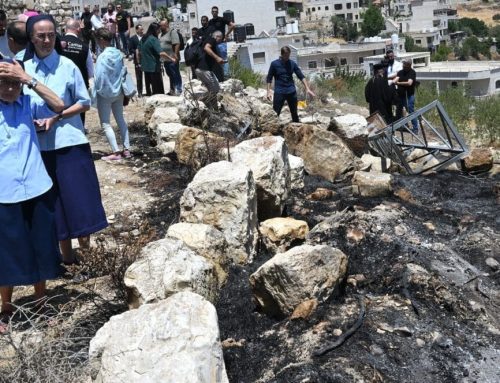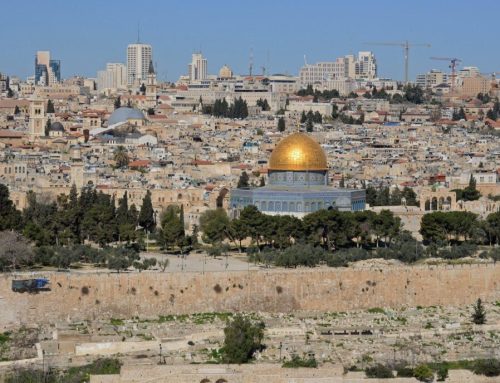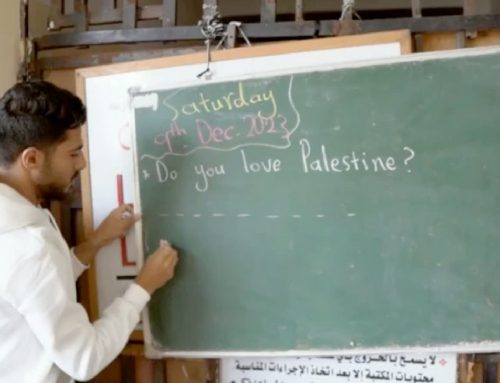WASHINGTON, January 5, 2015 — While most victims of war and terrorism in the Middle East are Muslims, ISIS and other Islamist groups have also increased their assaults on Christians. As a result, the proportion of Middle Easterners who are Christian has dropped from 14 percent in 1910 to 4 percent today.
Will Christianity, after 2,000 years, vanish from the Middle East?
A war none dare name: Attacking Christianity
Mosul, in northern Iraq, was once home to tens of thousands of Christians. The Economist magazine reports that these Christians were perceived as supporting the Americans.
“(They) were targeted by insurgents after the invasion. A wave of killings in 2008, including that of the local Chaldean archbishop, seemed to mark the low point for the community. Then came IS. When the jihadists entered the city in 2014, they reportedly tagged Christian houses with an ‘N’ for ‘Nazarene’ and gave their occupants a choice: convert, pay the jizya, a tax on non-Muslims, or face possible death. Most fled.”
In July 2014, IS announced that the city was free of Christians. The U.S. invasion of Iraq, now largely understood to have been a mistaken policy based on false information and characterized by poor planning, was disastrous for Iraqi Christians. Bechara Boutros Al-Rahi, Lebanon’s Maronite Christian Patriarch, said,
“In Iraq, when Saddam Hussein was removed, we lost a million Christians. Why? Not because the regime fell, but because there was no more authority, there was a vacuum. In Syria, it’s the same thing. Christians do not back the regime (of Bashar Al-Assad), but they are afraid of what may come next.”
ISIS has embarked on the practice of enslaving those who do not renounce their religious beliefs. The Hudson Institute reports:
“Islamic State’s ‘revival’ of the institution of chattel slavery—the sexual slavery of Christian and Yazidi women and girls … has faded from public attention. Over the past decade, thousands of Iraqi and Syrian Christian—including, in 2013, an entire convent of Syrian Orthodox nuns—have been taken captive for ransom.
The celebration of Christmas is under attack throughout the Middle East. Kamel Daoud, a columnist for Quotidian d’Oran, reports,
“a harsh campaign was conducted against people who celebrate Christmas. In Algeria, Islamists worked the streets under the regime’s tolerant eye, distributing leaflets denouncing the day as unholy … In Brunei and Somalia, celebrating Christmas could lead to imprisonment. The Islamists’ argument came down to one essential point: To celebrate Christmas or New Year’s was to imitate the ‘Kuffar,’ or atheists, which is to say, basically, Westerners … Pointing out that Christmas is Jesus’ birthday and that Jesus is a recognized prophet in the genealogy of the Quran would have served no purpose. The Islamists’ mental cartography is binary … Land of Islam versus Land of Impiety. They want to de-Westernize the Arab world.”
The horrors inflicted by ISIS are mounting. In one incident, ISIS demanded that two Christian women and six men in a conquered village convert to Islam. When they refused, the women were publicly raped, then beheaded along with the men. The Islamists then cut off the fingertips of a 12-year-old boy to persuade his Christian father to convert.
When the father refused, he and his son were tortured, then crucified.
In July, Pope Francis called the persecution of Christians in the Middle East “genocide.” In December, 30 religious leaders and scholars sent a letter to Secretary of State John Kerry urging the U.S. to declare Christians genocide victims under the U.N. Genocide Convention.
ISIS fills vacuum left by Europe’s collapsed Christianity
The 1948 Genocide Convention partly defines genocide as “deliberately inflicting on” a religious group “conditions of life calculated to bring about physical destruction in whole or in part.”
The letter to Kerry cites:
“ISIS assassinations of church leaders; mass murders; torture; kidnapping for ransom in the Christian communities of Iraq and Syria; its sexual enslavement and systematic rape of Christian girls and women; its practices of forcible conversion to Islam; its destruction of churches, monasteries, cemeteries, and Christian artifacts; and its theft of lands and wealth from Christian clergy and laity alike.”
Christianity is under attack in Israel as well. Jewish extremists are not unlike their Islamic counterparts. The Jewish newspaper, the Forward, reports that, “This year (2015) has seen an escalation of anti-Christian extremism from Israeli Jews, who have become increasingly visible while critics see response from the government as lacking … the Galilee’s symbolically and religiously significant Church of the Multiplication of the Loaves and Fish was firebombed by Jewish extremists who scrawled on its wall, ‘False idols will be destroyed.’”
An anti-Arab group, Lehava, which opposes the presence of both Muslims and Christians in Israel, has stepped up its activism, most recently with a protest in front of the Jerusalem International YMCA during a pre-Christmas celebration.
“The Arabs won’t defeat us with knives, and the Christians won’t buy us with presents,” the Lehava protesters chanted. Benzi Gopstein, the head of Lehava, wrote an article in Kooker, an ultra-Orthodox publication, calling for the outright removal of Christians from Israel. “Let’s throw the vampires out of our land before they drink our blood again.”
There were few pilgrims in Bethlehem this year. Young Palestinians threw stones at Israeli soldiers manning the wall separating the occupied West Bank from Israel. Mitri Raheb, pastor of a church in Bethlehem, says that the Israeli occupation hurts Palestinian Christians far more than persecution by Muslims, but provokes less outrage in the West.
The future of Christians in the Middle East seems bleak. The U.S. Commission on International Religious Freedom has urged that the treatment of Christians in the region be designated as genocide. An official designation of genocide by the U.S. would put pressure on the U.N. to initiate action to stop the slaughter.
Pope Francis has referred to the persecuted Christians of the Middle East—Catholic, Orthodox and Protestant—as united in an “ecumenism blood.” Abbot Abou Abdou, who heads the small Maronite community in the besieged city of Aleppo, Syria, says of his flock:
“One can see on the faces of the majority the reflection of an inner happiness that takes you to the spiritual realm. They are able to thank the Lord with all their heart; they do not complain despite the persecution, all the distress and deprivations. There is a smile on their faces. They thank you and appreciate everything you do for them. My people, the children included, give me lessons in happiness.”
It is time for the U.S. and the world to recognize this barbaric assault upon religious freedom as the evil it is and to take steps to bring it to an end. The world’s record in this regard is not good. As the Nazis proceeded with genocide, the world looked away, and closed its doors to Jews attempting to flee. To the question, “Am I my brother’s keeper?” the world usually says, “No.”
Maybe in 2016 the world will finally say, “Yes.” Thus far, there is little indication that this is the case.
Source: CDN News






